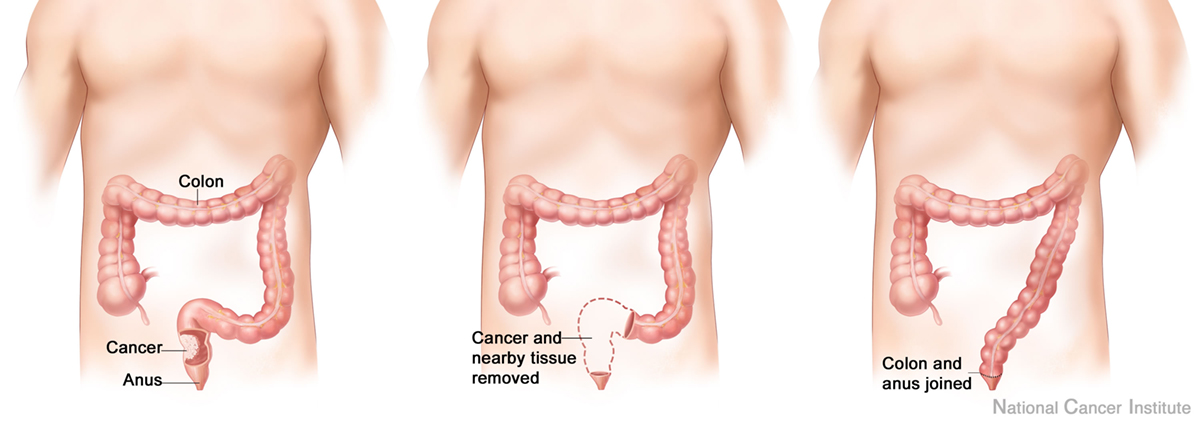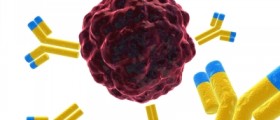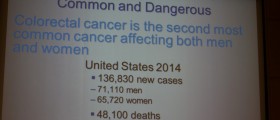
Colon cancer develops, as the name itself suggests, in the colon. There is also rectal cancer, in which case the cancer develops only in the few last inches of this digestive organ, and together they are called colorectal cancer.
The people who suffer from colon cancer usually experience a change in their bowel movements, which includes constipation and diarrhea, as well as some noticeable changes in the stool consistency, which is present for more than a month. Furthermore, blood in the stool, constant abdominal discomfort like cramps and gas, as well as a general feeling of fatigue and unexplained weight loss, are also some of the signs of colon cancer that should not be neglected.
In most cases, the type of cancer in question does not show any symptom in the first stage but only later in the more advanced stages, and for this reason it is important to regularly analyze the stool in order to prevent the development of colon cancer. People who notice some of the changes mentioned above, meanwhile, are wise to seek medical attention to rule out colorectal cancer — even though these symptoms can also have numerous other causes.
Causes of colon cancer
The exact culprit for the occurrence of the colon cancer has not not found even though the process of the development of the cancer is well known — cancer develops when the cells mutate and start to multiply themselves in excessive amounts, thus forming a tumor. When colon cancer is in question, the cells in the intestinal lining abnormally grow and after a couple of years, these cells may turn cancerous.
In most cases, polyps or the precancerous cells may develop into colon cancer if they are not treated or removed in a timely manner. Nonpolypoid lesions are also precancerous cells, which are deeply recessed in the colon wall and for that reason, they are more difficult for doctors to detect than the polyps, though they also should be removed promptly.
How is colon cancer treated?
Colon cancer may, depending on the stage and exact location, be treated with a combination of chemotherapy, radiation therapy, and surgery to remove the tumor or portions of it. A patient's treatment team carefully analyzes the best course of action and plans treatment for the individual in question.
Life expectancy for patients who have colon cancer
Whenever cancer is diagnosed, the patient and their family will want to know about the life expectancy which, of course, depends on the stage of the cancer, as well as on the age and health of the affected person. When the colon cancer is detected in the first stage and when the cancerous cells spread to the central colon layers, the life expectancy is about 5 years in 95% of the cases. When the colon cancer is discovered in the second stage, the survival rate is 5 years in 73% of the cases, while in the third stage of the colon cancer, in about 45% of the cases it is 5 years. In the final fourth stage of the colon cancer, life expectancy is five years in only 8% of the cases.

















Your thoughts on this
Loading...